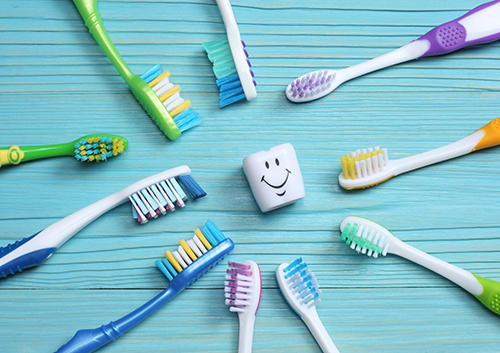Aging and Dental Health
March 3rd, 2022

As you grow older, your mind may be preoccupied with the health of your bones, heart, or brain. However, our team at Fabre Family Dental Care of Marrero will tell you that keeping your teeth healthy is an equally important part of the aging process. Older adults are at increased risk for a variety of oral health conditions, which makes it essential for you to speak with your dentist to create a prevention plan that’s best for you.
Oral health conditions associated with aging
Just as the rest of your body continues to change as you age, your mouth changes, too. Certain conditions become more likely to develop as you reach older adulthood, including:
- Dry mouth. Although your salivary glands continue to produce saliva as you get older, medications and chronic health problems often cause dry mouth.
- Root decay. Your teeth have lasted you a lifetime, but improper nutrition or cleaning may lead to decay at the roots of your teeth.
- Diminished sense of taste. Your eyesight and hearing aren’t the only senses affected by aging. The ability to taste naturally diminishes over the course of older adulthood.
- Tissue inflammation. Are your gums tender, bleeding, or inflamed? Tissue inflammation may indicate gum disease or may be a consequence of wearing dentures that don’t fit well.
- Oral cancer. Risk for most cancers increases with age, and oral cancer is no exception. Older adults are at increased risk for oral cancer compared to younger individuals.
Ways you can prevent dental problems
Fortunately, many age-related oral health problems are preventable. Begin by improving your diet to include plenty of fruits and vegetables. Choosing water over coffee or soda will keep your teeth whiter and cavity-free. Also remember to practice good brushing habits to prevent cavities and gum disease.
Visiting the dentist at least twice a year is vitally important when you reach older adulthood. Your dentist is familiar with your oral health and may be the first person to notice a sore, discolored patch, inflammation, or other abnormality that indicates oral cancer or gum disease.
If you’re experiencing any problems with dental health, let your dentist know immediately. Together, you can troubleshoot solutions and create a plan that keeps your mouth and gums healthy.
For more information, or to schedule an appointment with Dr. Keith J. Fabre Jr., please give us a call at our convenient Marrero office!



